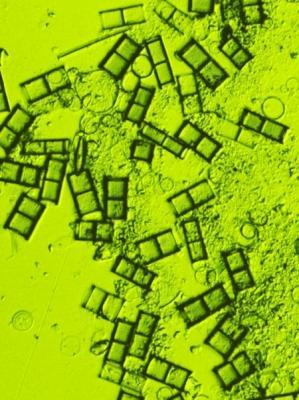EPA has awarded a grant totaling $3,000,000 to the University of Minnesota Duluth (UMD) to monitor phytoplankton in the Great Lakes ecosystem. The grant will be funded through the GLRI and is part of a larger effort to restore and protect the Great Lakes.
UMD will use this funding for monitoring and research as part of EPA’s Great Lakes Biology Monitoring Program, which was initiated in 1983 to assess the health of the Great Lakes. This work will include continued monitoring of the status of phytoplankton communities, which form the base of the food web, in each of the Great Lakes. The critical information collected by UMD in support of this EPA long-term monitoring program will help advance understanding of how the Great Lakes ecosystem has responded to stressors such as changing nutrient conditions, invasive species, and a changing climate.
“This project addresses the need to protect water resources against emerging threats,” said Euan D. Reavie PhD, a Senior Research Associate at UMD’s Natural Resources Research Institute. “These monitoring data can be used to help inform management decisions to protect and enhance Great Lakes water quality and ecosystem health, providing benefits to the people in the Great Lakes region.”


